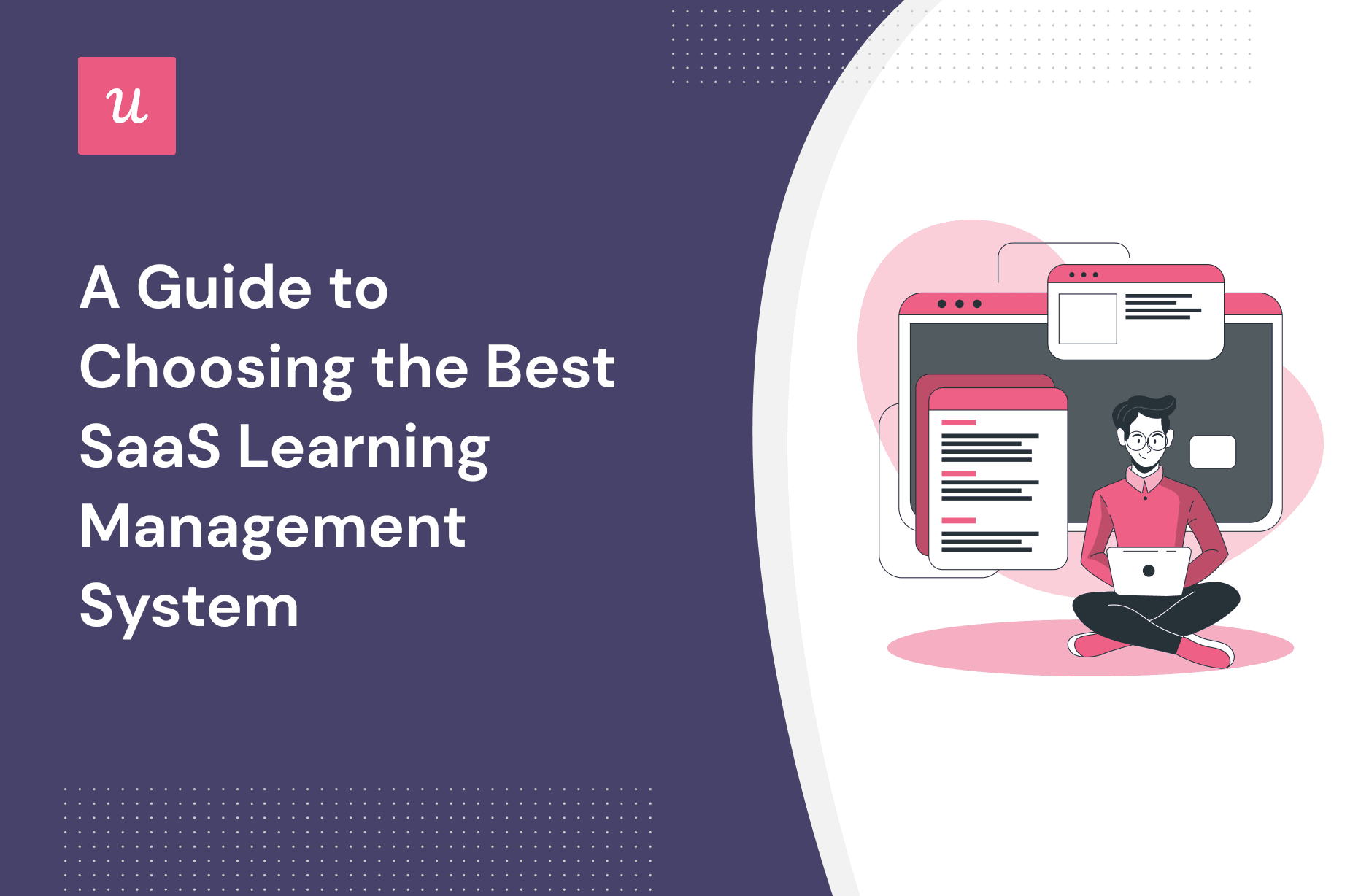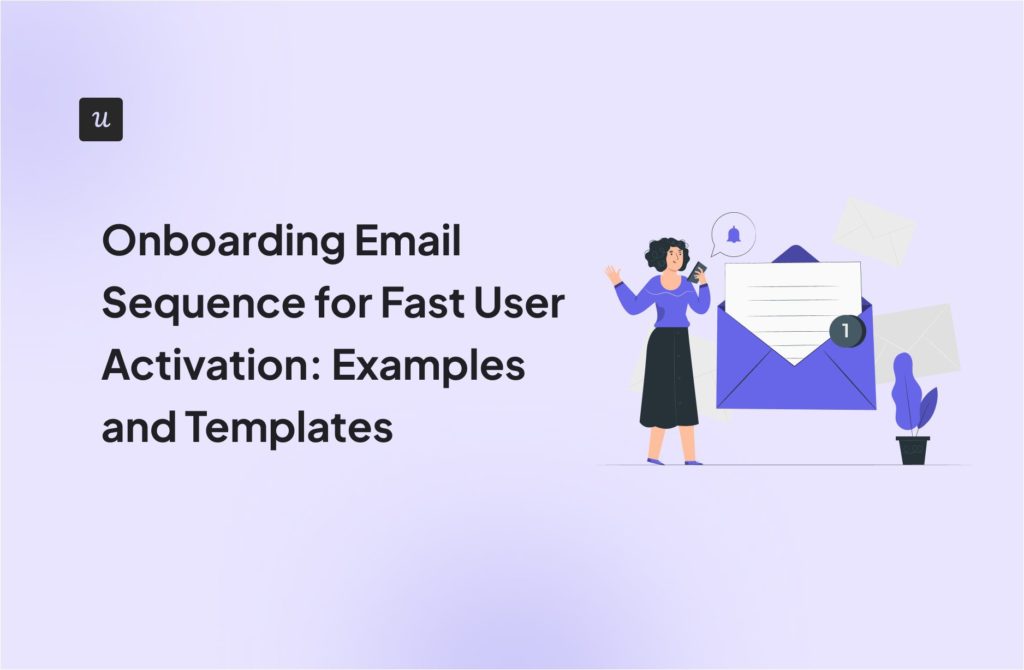
A Guide to Choosing the Best SaaS Learning Management System
Get The Insights!
The fastest way to learn about Product Growth, Management & Trends.
What is a SaaS learning management system?
A SaaS learning management system (LMS) is a platform for creating and delivering training courses and eLearning programs.
These could be either internal corporate training programs, like compliance training, or courses for external stakeholders, like your customers.
SaaS learning management systems are used in the learning and development industry for fully online courses as well as blended learning. In the latter, some of the training content is delivered online, and some in the traditional classroom.
SaaS LMS vs. self-hosted LMS
Choosing between a SaaS LMS and a self-hosted LMS is the first decision you need to make.
A SaaS LMS is a cloud-based LMS. Such systems are hosted and maintained by the software provider, and users can access them from their internet browser – often for a subscription fee.
A self-hosted LMS, on the other hand, is installed on the customer’s own servers. This gives them complete control over the customization and avoids any issues with data ownership.
Why use a cloud LMS for providing online training programs?
Cloud-based SaaS LMS platforms have a number of advantages over self-hosted ones.
These include:
- Lower up-front costs – there’s no need to invest in the server infrastructure.
- Easy setup and deployment – they don’t require complex installations or server configurations.
- Flexibility and scalability – you don’t have to worry about expanding your server capacity as you’re growing your user base or course offerings – or reducing it if you decide to scale down.
- Updates and maintenance – the SaaS LMS vendor looks after the infrastructure and ensures the software is up-to-date and secure.
Must-have features of good SaaS learning management systems
Which features should you prioritize when choosing a SaaS LMS provider for your organization? Here are the must-haves:
- Intuitive and user-friendly UI.
- Course management functionality to enable admins and training managers to easily create and upload their courses.
- Support various types of learning content, like text, videos, or quizzes, to make the learning engaging.
- Tracking and reporting functionality to keep a pulse on learners’ progress.
- Collaborative learning features.
- Mobile compatibility so that learners can access the resources on the go and from different kinds of devices.
- Integrations with other tools like video conferencing apps or HR software.
- Gamification and engagement features like leaderboards or badges.
- Analytics of the course performance to enable trainers to improve their courses.
The best SaaS LMS providers of 2023
LMS vendors offer a range of solutions that enable you to deliver quality educational experiences. Some of them are more suitable for customer training, while others will work better for employee training.
Let’s check out a few top ones in detail.
1. Userpilot
Userpilot is a product adoption and onboarding platform that offers a range of features that enable you to develop in-app training materials for your users.
What are these features?
Let’s start with the Resource Center widget.
With Userpilot, you can develop bespoke modules with support content. Apart from text docs, you can use the resource center to embed videos, webinars, checklists, and surveys. You can also use the localization feature to translate the resource center for your users across the globe.

To ensure that the modules are relevant, you can fully customize who can see them and where. For example, you can choose to enable the module only on specific pages or for particular user segments.

Userpilot also offers analytics features that allow you to track user engagement with the resource center modules. Thanks to that, you can see how many users accessed them.

In addition to the resource center functionality, Userpilot allows you to build educational in-app experiences for contextual support.
For example, you can use UI patterns, like tooltips, to provide guidance on various parts of the interface and the available features for users who first visit the page.
You can trigger the in-app messages individually or combine them into interactive walkthroughs.

With Userpilot’s native mobile SDK, you can create targeted onboarding flows using slideouts, carousels, and push notifications without writing extra code.
Userpilot pricing
The company offers 3 pricing plans.
The lowest plan, Traction, starts at $299/month and allows you to trigger in-app onboarding experiences. The resource center functionality is available in the Growth and Enterprise plans, which have custom usage and pricing.
2. TalentLMS
TalentLMS is a popular cloud-based learning management system used to deliver online training and e-learning programs for employees as well as external stakeholders.
It offers a range of features that enable you to create, deliver and track educational content:
- Intuitive drag-and-drop course builder
- Support for blended learning, combining online learning and instructor-led training
- High levels of customization and localization
- Tests and quizzes for assessment and custom certificates
- In-depth course analytics

TalentLMS pricing
TalentLMS comes with 5 pricing plans:
- Starter – $69/month
- Basic – $149/month
- Plus – $279/month
- Premium – $459/month
- Enterprise – custom pricing
3. UserGuiding
UserGuiding, just like Userpilot, is a product growth platform, not truly an LMS. As such, it offers similar functionality for customer training and onboarding:
- Resource center for on-demand help
- UI patterns for in-app guidance
- Product tours
- Onboarding checklists
- In-app surveys for quizzes and tests
- Analytics to track engagement with the content

UserGuiding pricing
The tool is available with 3 plans:
- Basic – $89/month
- Professional – $389/month
- Corporate – $689+/month
4. Chameleon
Chameleon is another onboarding tool in our roundup. However, unlike Userpilot or UserGuiding, you can also use it for employee onboarding.
Here are the main features:
- Launchers (in-app widgets with access to tours, links, surveys, and docs)
- Tooltips for in-app guidance
- Tours
- Onboarding checklists (available from Launchers only)
- In-app surveys
- Experience analytics

Chameleon pricing
There are 3 Chamaleon plans:
- Startup – from $279/month
- Growth – from $999/month
- Enterprise – custom pricing
5. Help Scout
Help Scout is a customer support platform that enables businesses to manage and automate customer inquiries and support. It offers a range of features that you can leverage for customer onboarding and education.
What are the features?
- Knowledge base with training materials, articles, product documentation, or FAQs
- Live chat for instant support
- In-app messages with personalized targeting (modals, tooltips, banners, surveys)
- Reporting and analytics

Help Scout pricing
Help Scout has 3 pricing plans and charges per user:
- Standard – from $20/month
- Plus – from $40/month
- Pro – from $65/month
This allows you to trigger in-app messages to up to 2000 unique viewers. Additional viewers cost extra.
6. Skilljar
Skilljar is a cloud LMS designed to help businesses create and deliver online training programs. It provides features that enable organizations to create, manage, and track training courses for employees, customers, external partners, and any other kind of target audience.
Here’s a breakdown of the key Skilljar features:
- Support for various media, including text documents, videos, audio files, images, etc.
- High levels of customization to provide personalized learning experiences
- Live educator-led training
- Assessments and certification
- Course reporting and analytics

Skilljar pricing
Skilljar is available with custom pricing. Some G2 reviewers mention that it could be at the higher end of the scale, which could make it unaffordable for smaller organizations.
7. Docebo
Docebo is a cloud-based AI-enabled learning suite that helps organizations create and deliver training programs for customers, employees, and partners.
Decebo’s key features include:
- Course builder and management system
- Shape – AI-powered content creator
- A library of ready-made learning resources
- Surveys and analytics to assess the effectiveness and impact of the courses on business objectives
- Integration into existing workflows for contextual learning

Docebo pricing
Just like Skilljar, Decebo comes with custom pricing for scalability and flexibility.
8. Litmos
Litmos is a SaaS LMS used for delivering training programs for both internal and external stakeholders, so you can use it to create personalized learning experiences for both your staff and customers.
Key Litmos features include:
- User-friendly content authoring tools for developing interactive learning activities
- Support for various types of content (video, audio, text)
- Social learning features
- Instructor-led training (virtual and classroom class scheduling)
- Gamification (badges, leaderboards)
- Quizzes and tests, including video assessments
- Analytics and reporting
- Off-the-shelf resource library

Litmos pricing
Litmos has 3 simple plans, one for the LMS only, one for the content library, and one for both. All of them are available with custom pricing.
9. Canvas LMS
Canvas LMS is a well-known web-based learning platform used mostly by educational institutions across all sectors for online and blended course provision.
Its features include:
- Content creation tools with support for multiple content formats
- Course creation and management functionalities
- Assessment and feedback tools, including video assessments
- Gamification features
- Social learning functionality
- Custom learning pathways

Canvas LMS pricing
Canvas LMS is an open-source solution that is free to use for educators. Organizations will have to use a custom-paid plan.
10. iSpring Learn
iSpring Learn is a fast and user-friendly cloud LMS that enables businesses to create and deliver online learning programs for employees, customers, and partner organizations.
Its key features include:
- Content authoring and management tools
- Support for various media
- Custom learning paths
- Collaborative learning and group management
- Assessments and progress tracking
- Certifications

iSpring Learn pricing
Unlike the other LMS vendors, iSpring charges per user. It also has 2 paid plans:
- Start – $2.29 per user per month
- Business – $3.14 per user per month
11. Paradiso LMS
Paradiso LMS is a learning management system that offers a variety of features to support online and blended learning and teaching.
Some of the main features of Paradiso LMS are:
- Paradiso Composer, a content authoring tool
- AI-powered course generator and course library
- Social learning features
- Gamification
- Virtual classrooms and video conferencing
- Performance tracking and analytics
- Certifications

Paradiso LMS pricing
Paradiso LMS offers ‘reliable and flexible LMS pricing options based on the solutions your business requires’ – as mentioned on its website. To get a quote, you need to get in touch with their sales team.
12. SkyPrep
SkyPrep is an award-winning online training platform that helps you create courses to support staff onboarding and development along with customer training.
Some of the features of SkyPrep are:
- Customizable UI
- Course builder with support for various media
- Learning paths
- Assessment and grading tools
- Gamification
- Collaboration and communication tools

SkyPrep pricing
SkyPrep offers 3 pricing packages: Lite, Professional, and Enterprise. Each of them comes with custom pricing.
13. Blackboard
Blackboard is an online learning solution widely used by educational institutions to deliver and manage online courses and training programs.
Its features include:
- Course creation and management
- Support for a variety of content types, including text docs, presentations, and videos
- Assessments and assignments with Gradebook for student progress tracking
- Collaboration tools
- Analytics and reporting

Blackboard pricing
Blackboard offers custom pricing. Reportedly, it’s one of the more expensive tools out there.
Conclusion
The choice of your SaaS learning management system will depend on your use case.
Large organizations aiming to deliver structured courses for multiple users will most likely go with a fully-fledged LMS like SkillJar, Canvas, or Blackboard.
If you’re looking for a platform for user onboarding, a product adoption tool like UserGuiding, Chameleon or Userpilot will be more suitable.
If you want to see how Userpilot can help you educate your users, book the demo!






